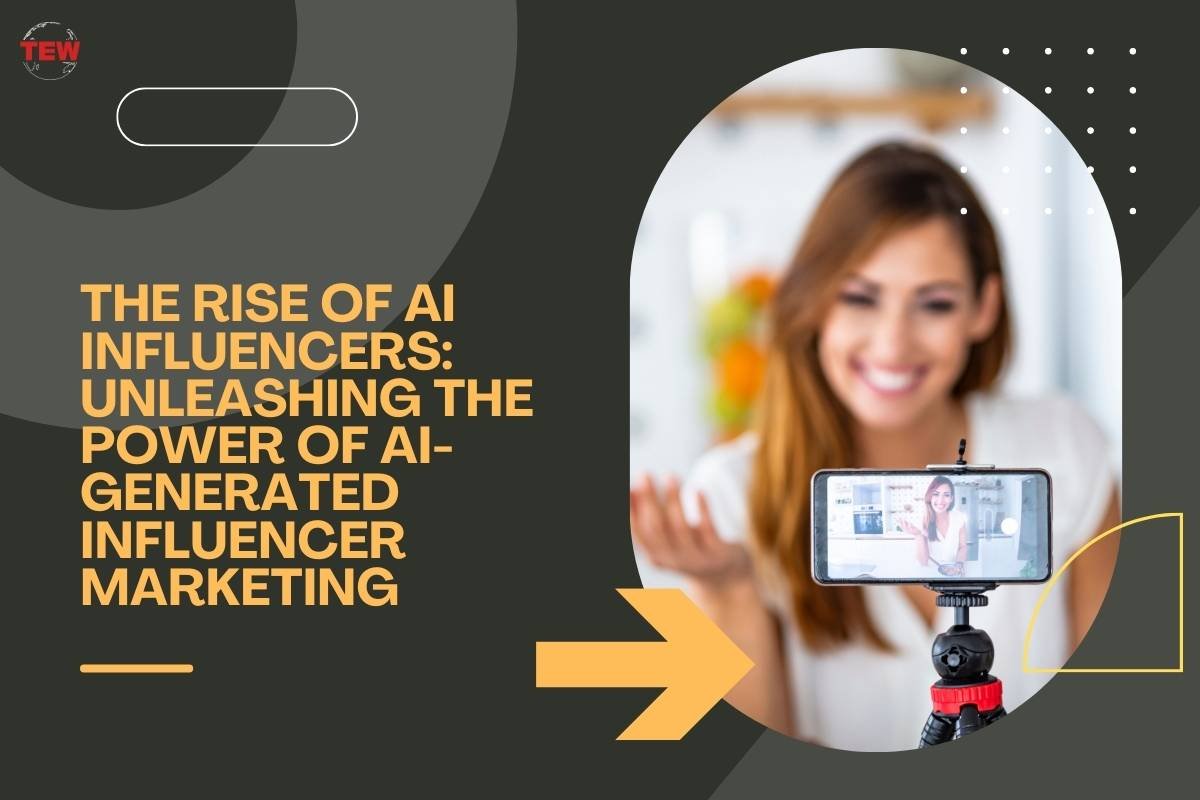In the ever-evolving world of digital marketing, a new trend has emerged that is revolutionizing the way brands interact with their audience: the rise of AI influencers. This groundbreaking approach leverages the power of artificial intelligence to create digital personalities that can promote products, engage with customers, and even influence market trends. This article explores the benefits, the burgeoning prevalence, successful case studies, and the inherent challenges of AI-generated influencer marketing.
The Benefits of AI-Generated Influencer Marketing
1. Expanding Reach with Precision
The advent of AI influencers has opened up a plethora of opportunities for brands to broaden their reach with unprecedented precision. Unlike human influencers, whose appeal might be limited by factors such as geographical location or niche interests, AI influencers can be tailor-made to appeal to diverse demographics. This customization extends beyond mere appearance, allowing for the adjustment of language, tone, and even cultural nuances to align perfectly with the target audience. Such precision ensures that marketing campaigns resonate more deeply with potential customers, fostering a greater sense of connection and engagement.
2. Cost-Effective Campaigns
One of the most compelling advantages of utilizing AI-generated influencer marketing lies in its cost-effectiveness. Traditional influencer marketing can be a costly endeavor, with high-profile influencers commanding substantial fees for their endorsement. In contrast, AI influencers, once created, can participate in an unlimited number of campaigns without demanding higher compensation. This efficiency not only reduces the overall expenditure on marketing but also allows for a higher frequency of campaigns or the allocation of resources to other areas of need within the business.
3. Round-the-Clock Engagement
AI influencers are not constrained by the limitations of human needs and schedules. They can engage with followers around the clock, across different time zones, ensuring that the marketing message is always active. This continuous engagement is invaluable for maintaining a brand’s presence in the minds of consumers and can lead to increased brand loyalty and awareness. Furthermore, AI’s ability to analyze data in real-time means that these influencers can adapt their interactions based on the latest trends and feedback, keeping the marketing strategy both relevant and responsive.
The Rise of AI Influencers in the Industry

1. Transforming the Marketing Landscape
The marketing industry is witnessing a seismic shift with the emergence of AI influencers. Initially viewed with skepticism, these digital creations are now being embraced for their ability to deliver consistent, engaging content. Brands across various sectors, from fashion to technology, are exploring the potential of AI to create influencers that embody their corporate identity and values. This transformation is not just about adopting new technology but reimagining the very essence of how brands connect with their consumers.
2. Bridging the Gap Between Innovation and Application
The rise of AI influencers represents a significant leap forward in bridging the gap between technological innovation and practical application. Developers are harnessing sophisticated AI algorithms to craft personas that are not only visually appealing but also capable of exhibiting personality traits, emotions, and even a sense of humor. This convergence of technology and creativity has resulted in influencers who can genuinely engage with an audience, providing personalized experiences that go beyond traditional advertising norms.
3. Setting New Standards in Content Creation
AI influencers are setting new benchmarks in content creation. With the ability to generate high-quality, engaging content at a faster rate than human influencers, they are pushing the boundaries of what is possible. This efficiency enables a more dynamic content strategy, where campaigns can be adapted and evolved in real-time based on audience engagement and feedback. Moreover, the use of AI ensures a level of consistency in the voice and style of the content, which is crucial for building brand identity.
Case Studies: Successful Campaigns with AI Influencers

1. Revolutionizing Fashion with Virtual Models
One of the most notable successes in the realm of AI influencers can be seen in the fashion industry. Renowned brands have collaborated with virtual models to showcase their latest collections, reaching millions of followers on social media platforms. These campaigns have not only generated significant buzz but have also demonstrated the potential for AI influencers to serve as credible and influential figures in the fashion world. The ability of these virtual models to transcend traditional limitations, such as aging or physical constraints, offers brands a unique opportunity to create enduring partnerships that evolve alongside their marketing needs.
2. Enhancing Engagement Through Personalized Experiences
Another success story involves a technology company that used an AI influencer to promote its products. By leveraging the influencer’s ability to interact in real-time, the campaign provided personalized recommendations and advice to followers, significantly enhancing user engagement. This approach not only boosted sales but also strengthened customer loyalty, as consumers felt a stronger personal connection with the brand. Such campaigns underscore the potential of AI influencers to transform passive viewers into active participants in the brand’s narrative.
3. Pioneering New Frontiers in Entertainment
The entertainment industry has also seen innovative applications of AI influencers. Virtual musicians and artists have released songs, performed in virtual concerts, and interacted with fans, blurring the lines between reality and digital creation. These ventures have opened up new revenue streams and expanded the audience base, demonstrating the versatility of AI influencers in adapting to and thriving in various sectors.
Challenges and Limitations of AI-Generated Influencer Marketing

1. Navigating Ethical Considerations
As with any innovative technology, the use of AI influencers raises important ethical questions. Issues related to transparency, authenticity, and the manipulation of consumer behavior are at the forefront of the debate. Brands must navigate these concerns carefully, ensuring that their use of AI influencers is transparent and maintains the trust of their audience. This involves clear communication about the nature of the influencers and a commitment to ethical marketing practices.
2. Overcoming Technical Hurdles
The creation and maintenance of AI influencers require significant technical expertise and resources. Challenges such as ensuring realistic interactions, managing the vast amounts of data needed for personalization, and protecting against cybersecurity threats are critical. Brands must be prepared to invest in the necessary technology and talent to overcome these hurdles and fully realize the potential of AI-generated influencer marketing.
3. Addressing Audience Skepticism
Despite their many advantages, AI influencers face skepticism from certain segments of the audience. Concerns about the loss of human touch and the authenticity of interactions with a digital entity can hinder acceptance. Overcoming this skepticism requires a strategic approach that highlights the innovative aspects of AI influencers while also emphasizing the value they add to the consumer experience.
Conclusion
In conclusion, the rise of AI influencers marks a significant milestone in the evolution of digital marketing. Their ability to engage with audiences on a personalized level, combined with the cost-efficiency and versatility they offer, makes them a formidable tool in the marketer’s arsenal. However, realizing their full potential necessitates a careful balance of innovation, ethical considerations, and technical proficiency. As the industry continues to navigate these challenges, the future of AI-generated influencer marketing looks both exciting and promising.


















